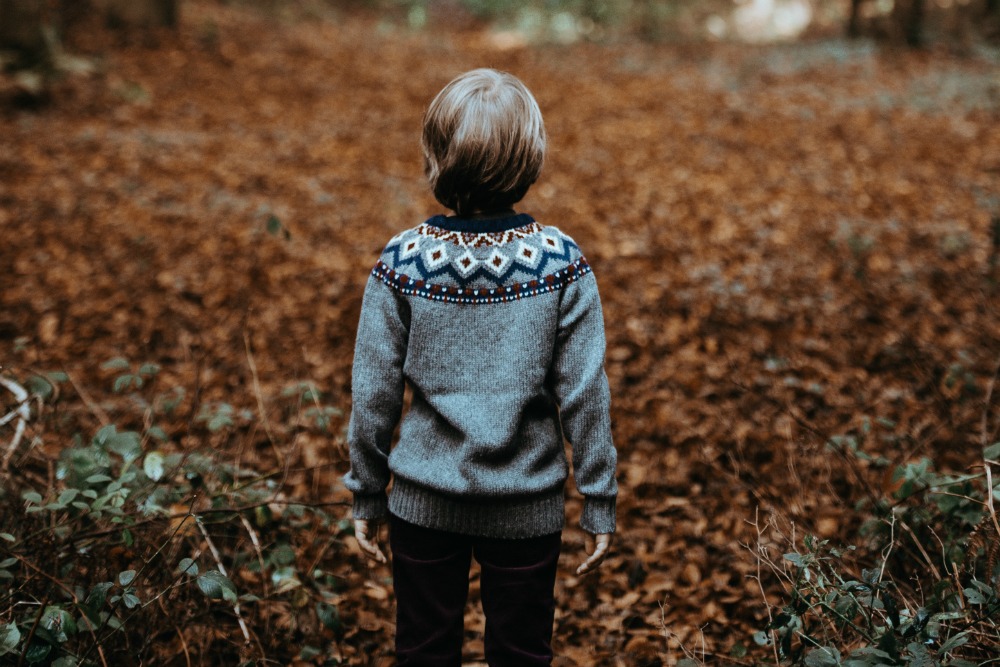We’ve all read about it and heard about it in the news. In 2016 the number of opioid overdose deaths in the United States topped 63,000. Not only does this number surpass the total killed by car accidents and firearms, it also surpasses the number of Americans who were killed in the 19 years of the Vietnam War. This epidemic has impacted the entire fabric of American life. Many who have died are young people and adults with children. So how do we talk about overdose death with children? What words should we use? How do we address a topic that brings up complicated feelings of sadness, anger, guilt, blame, worry, isolation, and anguish, as well as the big “why” questions and the desire to protect those we love?
There are really two parts to these questions. First, how do we talk about drugs and addiction and second, how do we talk about death by overdose. Another point to consider is children’s exposure to the loved one’s substance use. Some children who have lost a family member to overdose already know that life had been a struggle or had been “different”, that the person had been experiencing ongoing trauma and change. Other children are not aware that their loved one struggled with drug-related issues, so both the drugs and death are foreign experiences. Either way, the death of a loved one is a difficult and often overwhelming experience for children.
Explaining Addiction to Children: Points to Consider
Not everyone who dies a drug-related death has struggled with addiction (also known as substance use disorder (SUD)), but many have. If this is the case, it is important to acknowledge the addiction and how it may have already impacted the child’s life.
- Addiction has multiple causes and is unique to each individual, but factors of genetics, personality, environment, exposure, and past trauma all play a role. In adult terms, it is a chronic relapsing condition, and in children’s terms it is an illness that impacts the brain and behavior—an illness that can be treated.
- One helpful approach is to use the “gum” analogy with young children– that treating addiction is like getting sticky gum out of their hair—very difficult to do and requiring a lot of time and effort. Another helpful image is that of a fish stuck on a hook—wanting to get “unhooked” can be a frustrating and difficult task.
- With children, offer as much clarity as possible around drugs of abuse versus medicine that the doctor prescribes for medical needs. For example, with a prescription drug overdose, one might say, “Joe used more of the medication than the doctor prescribed or was safe to use.” An addiction is an “invisible disease that causes a person to use more (alcohol or other drugs) than is safe and can be treated but sometimes can end in death.” The words “drug,” “medicine,” and even “substance” can be unclear. Clarify that not all medicine is addictive or bad for us, and that it is important to never take someone else’s prescribed medication. Teenagers can often understand the different meanings of the words, but you must keep it clear.
- Addiction “highjacks” or controls the brain and can make people do or say hurtful things that they don’t really mean. In other words, try to separate the person from the disease. In addition, it is important to clearly state that the child did not cause the addiction, so as to separate the child from the cause.
- Children growing up in homes with a family member who struggles with addiction can experience a confusing array of emotions. They can both be very protective and loyal to their family member, but also resentful and hurt. Often, they are reluctant to open up due to the fear of sharing a long-held family secret or of feeling shame and embarrassment. It can be helpful to acknowledge this conflict, and that multiple feelings can be experienced at the same time.
The following “Seven Cs of Addiction”, from the National Association for Children of Alcoholics, is a helpful tool for your discussion of addiction with your child:
- I didn’t Cause it.
- I can’t Cure it.
- I can’t Control it.
- I can Care for myself
- By Communicating my feelings,
- Making healthy Choices, and
- By Celebrating myself.
Explaining Overdose Loss to Children
Now we address the challenge of explaining overdose death to children. There is no exact script, but there are some talking points that may help. The initial conversation is not the time to share all of the available information about the death. Instead, the beginning conversation lays the groundwork, allowing the child to react and ask questions while allowing the adult to support and draw out what the child is thinking and feeling. Some children may have heard the terms “overdose” or “drug-related death”, but many have not. Well-meaning adults are sometimes tempted to “protect” children and to avoid the truth when talking about overdose death. Children will inevitably discover the true cause of death of close family members and friends, and it is best to first hear this information from the adults they trust. Adults can reassure children in these moments and talk about their concerns.
Below are guidelines we can use to address this sensitive topic:
- Take care of yourself first: Consider the airplane analogy — put on your own “oxygen” mask before placing one on your child. Take a couple of deep breaths and give yourself time to collect your thoughts.
- Think about the conversation in terms of building blocks: Telling “the truth” does not mean sharing all the information at once. This foundation of truth can be built upon during future conversations.
- Name your feelings but try to keep them in check: When we are processing difficult news, we will experience waves of feelings; after all, we are human. Name your feeling, e.g. “I am feeling very sad right now,” but stay as calm as possible and take breaks when needed.
- Keep language clear: Try to use language that is appropriate to your child’s age, level of understanding, and previous knowledge of the situation.
- Younger children need a concrete explanation of death and overdose: “Death means the body has stopped working” and “An overdose is when someone takes too much of a drug or the wrong drug, and it makes their body stop working.”
- Talk about the person who died in a caring and respectful way: “Your Grandma died by an overdose, but this does not define who she was.” Just as a period does not define a sentence, the cause of death does not define a person. He or she is not “an overdose” but a person who died by an overdose.
- Avoid assigning fault and blame: Underline that it is not anyone’s fault that this person died—and that the death is certainly not the child’s fault. Remember that in the course of normal development, children can experience “magical thinking” which sometimes leads them to see a death as their fault.
- Guide children in learning to share information appropriately: Children may need assistance in sharing with others what has happened. Let them know that sharing does not mean telling everything—it is not a lie to keep some things private. They may need guidance in answering questions from peers or community.
Children and teens need to make sense of the death and embrace their feelings as much as adults do. Be sure to remind the child that if they themselves ever struggle with their feelings, there is always help available. Avoid comments like, “Your loved one wouldn’t want you to be sad.” These will only serve to shut down conversation. Instead, reassure them that it is okay to feel any emotion and share with you if they choose. Avoid trying to make sense of the loss for your child or teen with blanket statements like, “They are in a better place now.” Instead, invite curiosity and questioning. Even when we do not have the answers, it is reasonable to share that you do not know and ask, “What do you think?”
Help them identify the people around them who are available to talk with during tough times. Help them to identify what safe activities bring them a sense of comfort and control when they are distressed, such as drawing pictures of their feelings, petting their cat, or listening to favorite music.
Substance abuse and overdose losses are complicated topics, difficult even for sensitive and thoughtful parents. Please reach out to a mental health provider if you need additional support or if you have on-going concerns. Remember, it is a sign of health to ask for guidance in times of need.
About the Authors:

Sarah Montgomery LCSW-C is the Coordinator of Children and Family Programs at the Chesapeake Life Center at the Hospice of the Chesapeake. She has over 20 years clinical experience providing individual, family, and group counselling in a variety of settings including school-based, outpatient psychiatry and community-based organizations. She holds a BA from Williams College and an MSW from University of Maryland School of Social Work. Sarah has also co-written three books Helping Your Depressed Teenager (1994) and the Clinical Uses of Drawings (1996) and recently Supporting Children After a Suicide Loss: A Guide for Parents and Caregivers (2015) with Susan Coale LCSW-C.
Joy McCrady, MS, LGPC, NCC, is a bereavement counselor with the Chesapeake Life Center of Hospice of the Chesapeake. She offers family-centered grief support and works with clients throughout the lifespan who have experienced traumatic loss. She co-facilitates a support group for those who have lost a loved one to substance abuse as well as a group for grieving teens.




My sons father just died of an overdose. My son lived with him, he was a lawyer, the best Dad. No one knew he was on drugs. Jack found him, thought he was sleeping and went to other room and came back later…..He is only 13. His Dad was EVERYTHING to him. Please, how do I help the most? I am in recovery. If it happened to me they would not be shocked. How will he get through this.